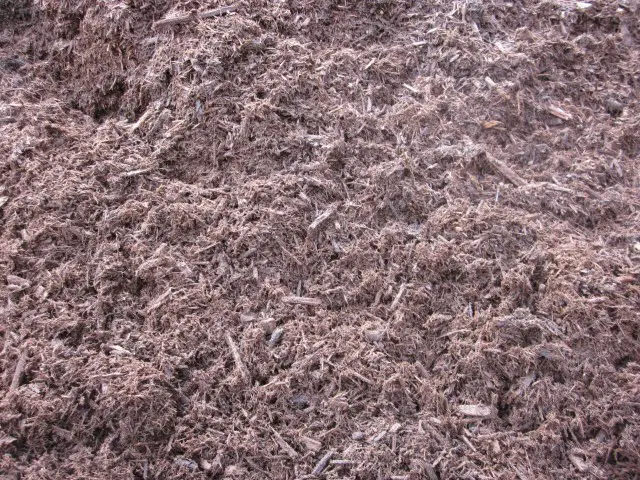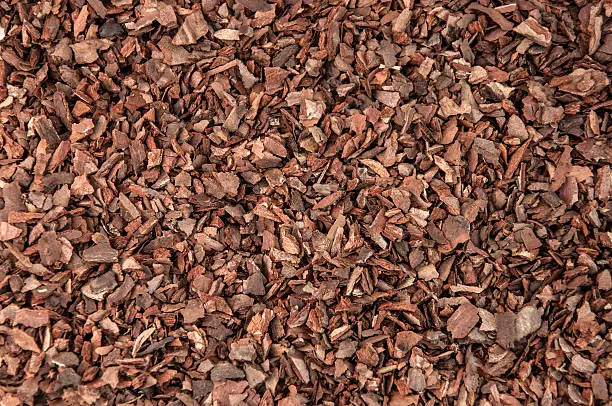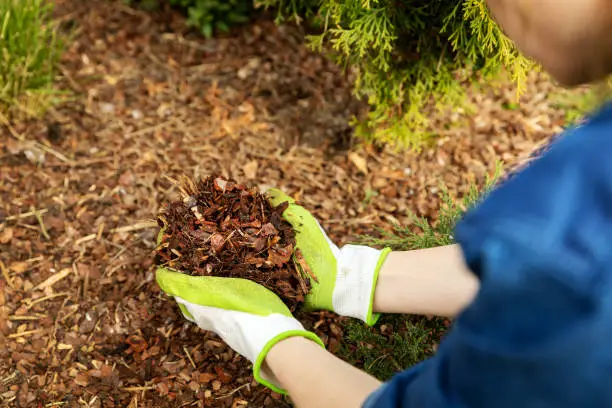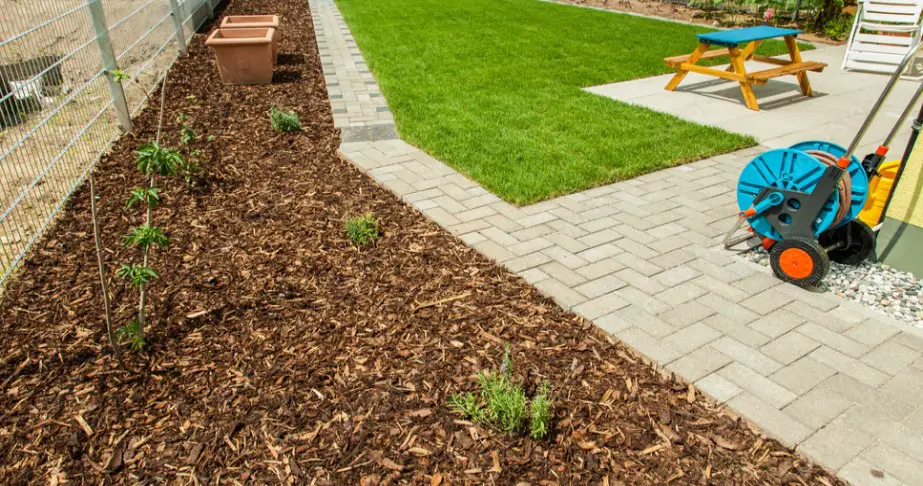When it comes to gardening and landscaping, mulching plays a vital role in promoting plant health and enhancing the overall aesthetics of your outdoor space.
It’s like the cozy blanket that keeps your plants snug and protected, while also adding a touch of visual appeal to your garden beds.
But with a plethora of mulching options available, how do you choose the perfect one for your beloved plants?
Among the various types of mulch available, root mulch and bark mulch are two options to consider.
Let’s uncover the secrets of these mulching options and discover which one better suits your needs.
What is Root Mulch?
Root mulch, also known as organic mulch, consists of natural materials derived from plants, such as leaves, straw, or compost.

It serves as a protective layer spread over the soil surrounding plants.
The benefits of root mulch are extensive, including improved soil moisture retention, weed suppression, temperature regulation, and enhanced nutrient availability.
It comes in both organic and inorganic options, allowing you to choose the material that better suits your needs.
What is Bark Mulch?
Bark mulch, on the other hand, is derived from the outer layer of tree bark.
It offers similar benefits to root mulch, making it a popular choice among gardeners.

The advantages of bark mulch include effective weed control, moisture conservation, soil insulation, and an aesthetically pleasing appearance.
Within the category of bark mulch, there are variations such as hardwood vs. softwood bark mulch and shredded vs. nugget bark mulch, providing further options for customization.
Related: Hemlock vs. Pine Mulch: Which is Better?
Comparison: Root Mulch vs. Bark Mulch
To make an informed decision about which mulch is right for your garden, it’s essential to compare the performance and characteristics of both.
Let’s explore key factors of comparison.
Moisture Retention
Both options excel in retaining moisture in the soil, reducing the frequency of watering, and promoting healthy plant growth.
However, root mulch, with its organic composition, tends to have superior moisture retention capabilities, especially in hot and dry climates.
Weed Suppression
One of the primary reasons for mulching is weed control.
Both root mulch and bark mulch effectively suppress weeds by limiting their access to sunlight.
But root mulch, with its finer texture and ability to form a dense mat, offers better weed suppression than bark mulch.
Nutrient Availability
Root mulch has an edge over bark mulch when it comes to nutrient availability.
As organic materials break down, they release valuable nutrients into the soil, nourishing plants.
Root mulch, being composed of plant matter, enriches the soil more effectively than bark mulch.
Impact on Soil Temperature
Mulch acts as an insulator, protecting the soil from extreme temperature fluctuations.
Both root mulch and bark mulch offer insulation benefits, but bark mulch is particularly effective in regulating soil temperature during hot summer months.
Durability
Root mulch, being organic, decomposes faster compared to bark mulch. However, the decomposition process enriches the soil over time.
Bark mulch, especially hardwood varieties, tends to be more durable and longer-lasting, requiring less frequent replacement.
Aesthetics
Bark mulch, with its natural and decorative appearance, often enhances the overall aesthetic of garden beds and landscapes.
Root mulch, while not as visually striking, still contributes to a neat garden appearance.
Cost Considerations
The cost of mulch can vary depending on factors such as availability, material type, and region.
Root mulch, often made from locally available organic materials, tends to be more cost-effective than bark mulch, which may require additional processing.
Related: Best Cedar Mulch for a Vegetable Garden
Factors to Consider When Choosing between Root Mulch and Bark Mulch

While comparing the attributes of root mulch and bark mulch is important, other factors should also influence your decision. Consider the following.
Climate and Weather Conditions
Evaluate your region’s climate and the specific needs of your plants.
In dry climates, root mulch’s superior moisture retention may be advantageous, while bark mulch’s insulating properties may benefit plants in extreme temperature conditions.
Soil Type and Composition
Different types of soil may require specific mulches. Sandy soils, for instance, benefit from root mulch as it improves moisture retention and nutrient availability.
In contrast, clay soils may benefit from the better drainage provided by bark mulch.
Planting Goals and Preferences
Consider the types of plants you have or plan to grow.
Some plants thrive in acidic conditions, making bark mulch, which gradually increases soil acidity, a suitable choice.
Aesthetic preferences can also influence your decision.
Maintenance Requirements
Evaluate the time and effort you’re willing to invest in mulch maintenance.
Bark mulch generally requires less frequent replacement due to its durability, while root mulch may require regular top-ups as it decomposes.
Related: Where to Get Wood Chips for Gardens
Final Verdict: Which Mulch is Better?
After exploring the characteristics, benefits, and considerations of both options, you may still find yourself wondering which option is best for your garden.
Ultimately, the decision will depend on your specific needs, preferences, and the conditions of your garden.
Here are a few key points to consider when making your final decision.
Performance
If you live in a dry climate or have plants that require consistent moisture, root mulch may be the better choice due to its superior moisture retention capabilities.
Capabilities
If weed control is a top priority, both mulch types can effectively suppress weeds. However, root mulch, with its finer texture, provides better weed suppression.
Soil Enrichment
For enriching the soil and promoting nutrient availability, root mulch, with its organic composition, has an advantage over bark mulch.
Visual Appeal
If visual appeal is important to you, bark mulch’s natural and decorative appearance can enhance the overall look of your garden beds and landscapes.
Longevity
If you prefer a mulch that requires less frequent replacement, especially in areas with extreme weather conditions, bark mulch, particularly hardwood varieties, tends to be more durable and longer-lasting.
Related
- Best Gravels to Walk on Bare Feet
- 10 Best Mulch for Wet Areas
- Top 7 Disadvantages of Decomposed Granite
- Grass Mulching Pros and Cons
- Gorilla Hair Mulch Pros and Cons
- Best Mulch for Perennials
- Top 10 Wholesale Mulch Suppliers
- Where to Get Wood Chips for Gardens


